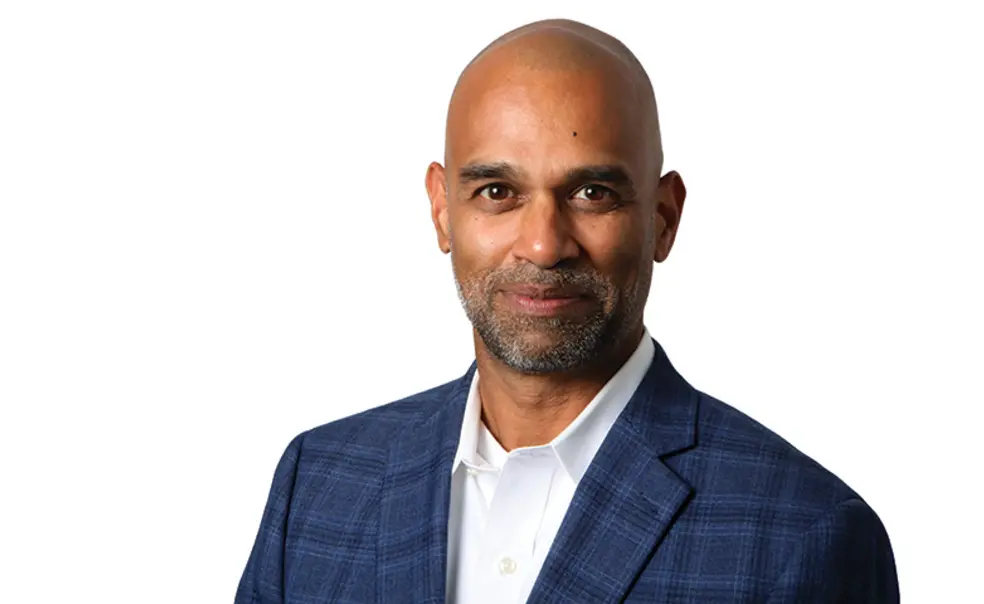Rajiv Vinnakota ’93 Is Working to Ensure Our Civic Future
At the Institute for Citizens and Scholars, Vinnakota is strengthening youth civic education
In 2019, trustees of the Institute for Citizens and Scholars (formerly the Woodrow Wilson National Fellowship Foundation) approached Rajiv Vinnakota ’93 with the suggestion that he become their next president, helping to support innovations in higher ed and K-12 education. Vinnakota in turn proposed a new focus for the organization: youth civic education, which he believes is “the single greatest education issue right now.”
Since then, the organization, with Vinnakota as president, has been working to develop “effective and engaged citizens” from Generation Z, and in turn, strengthen American democracy during a time when he and many others believe it is under threat. “You’ve got record low approval ratings for government, public trust waning for government and institutions, and neighbors and people who didn’t vote like you, and a not-strong-enough understanding of how our political systems work and the historical underpinnings for it,” says Vinnakota. By fostering the next generation, he believes, “we have a shot at ensuring our democracy thrives.”
“They understand more about how systems work, because they’re actually engaging … and because they’re starting to make a difference, they get a sense of their agency and therefore hope ...”
— Rajiv Vinnakota ’93
Among other efforts, the institute identifies and supports young people who want to make a difference in their community through its Civic Spring Fellowships for people ages 14–24 or members of youth-centered organizations. Fellows participate in programming aimed at building their civic knowledge and gain on-the-ground skills by working alongside or being mentored by an intergenerational team of coaches and civic leaders. Recipient organizations have included Bridgemakers, a youth-led group in Minnesota that won more than $30 million in back pay for high school students during the pandemic and successfully repealed a state law that prevented high schoolers from receiving unemployment benefits while in school. Another fellowship winner, the Kentucky Student Voice Team, conducted widescale surveys to ensure youth perspectives were included in state pandemic policy and successfully blocked a legislative proposal that would have eliminated the sole student and teacher seats on the Kentucky Board of Education. A third, Community Rising in Philadelphia, works to combat the effects of gun violence. Students and youth leaders from low-income communities of color have hosted a rally on gun violence at the State Capitol, met with the mayor, and connected community members with mental-health resources.
Youth education has been at the center of most of Vinnakota’s career. He spent three years as an executive vice president at the Aspen Institute, where he founded and led the Youth and Engagement Programs division, which was also focused on cultivating civic virtue. Before that, he co-founded the SEED school in Washington, D.C., and the larger SEED Foundation, a network of public urban boarding schools, for which he won Princeton’s Woodrow Wilson Award in 2009.
Vinnakota says the institute (which began as an effort to encourage veterans of World War II to pursue Ph.D. studies in humanities at Princeton) spends a great deal of time talking about the three criteria for its fellows: that they be civically well-informed, productively engaged, and hopeful about democracy. “The thing we see with these fellowships … is that the more they work on this, all three of those get achieved,” Vinnakota says. “They understand more about how systems work, because they’re actually engaging … and because they’re starting to make a difference, they get a sense of their agency and therefore hope that democracy can be a mechanism and a force for good.”
Nominate Other Inspiring Alumni
This story is part of a new series highlighting the stories of alumni doing inspiring work. To nominate others, please email paw@princeton.edu.












No responses yet